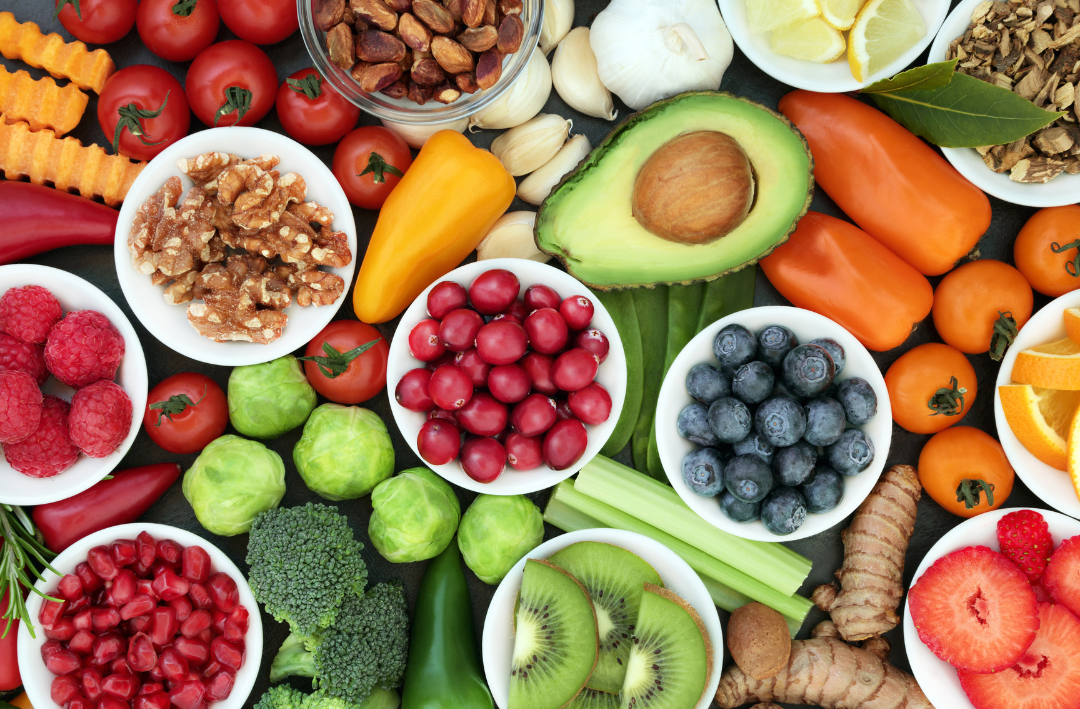Inflammation is the root of most diseases.
All roads lead back to diet.
Our Creator literally put the medicine in the food!
God is something of an artist.
Every single vitamin, amino acid, and mineral the body needs to function can literally be found in either a plant or animal. Altogether, this allows for a healthy and well-rounded diet.
Unfortunately, most people don’t eat real food. Unlike 60 years ago when people actually used to cook, today, most have turned to processed foods due to their convenience and conventionality.
Why is disease so mainstream?
73% of America is overweight.
The problem is that most people consume highly processed foods. In fact, two-thirds of children’s and teens’ diets consist of ultra-processed foods.
Adults in the United States only get 10% of their daily recommended intake for fruits and vegetables.
Now, practically every other person you meet is suffering from some sort of chronic illness or disease.
More than 40% of American children are suffering from one or more chronic illnesses.
In the United States, more than 40% of school-aged children and adolescents have at least one chronic health condition, according to the CDC.
From IBS to polycystic ovary syndrome (PCOS), it’s easy to think of at least 10 people you know with one disease. Obesity is considered a disease, so technically 73% of Americans are dis-eased.
52% Increase in Autism
One in 30 children has autism.
A new study published in JAMA Pediatrics found a 52% increase in Autism Spectrum Disorder (ASD) diagnoses among children and teens in the U.S. between 2017 and 2020.
The study from public health researchers at Guandong Pharmaceutical University in China claims that 1 in every 30 kids has ASD, which the National Institute of Mental Health describes as “a neurological and developmental disorder that can affect how people interact with others, communicate, learn, and behave.”
The communication between food and genes affects our health, physiology, and longevity.
While the heredity of certain traits plays a huge role in whether or not a child will have a certain genetic disorder, research has also proven that whatever a woman consumes during her pregnancy will affect the child.
The idea that food delivers important messages to an animal’s genome is the focus of a field known as nutrigenomics.
According to cancer.org, “Nutrigenomics” is the study of how food affects a person’s genes and how a person’s genes affect the way the body responds to food. Nutrigenomics is used to learn more about how genes and diet together may affect a person’s health and risk of developing diseases, such as cancer.
Nutrigenomics is allowing scientists and doctors to discover new ways to prevent and treat disease.
This is a discipline still in its infancy, and many questions remain unanswered.
On the bright side, researchers have learned a great deal about how food components affect the genome.
How is Food Translated into Biological Instructions?
Food is composed of macronutrients, including carbohydrates, sugars, proteins, and fat.
Food also contains micronutrients such as vitamins and minerals. These compounds and their breakdown products can triggergenetic switches that reside in the genome.
Similar to the switches that control the intensity of the light in your house, genetic switches determine how much of a certain gene product is produced.
The “messages” in food can influence wellness, risk for disease, and even life span.
Why do you think most people are developing chronic diseases?
Tell us your thoughts on Twitter @valuetainmenttv
ABOUT THE CONTRIBUTOR
Elena Patestas is a Contributor for Valuetainment. She attended Pepperdine University in Malibu, California, and Adelphi University on Long Island, New York. She was born and raised in Roslyn, New York, and currently lives in New York.
Elena is passionate about bringing positive change to our world and believes education is the root to solving many societal problems. After overcoming a chronic health condition, Elena became passionate about health and believes food is the key to preventing dis-ease and achieving optimum health.
Amongst her many goals, she hopes to bring positive, impactful change to our world to create a healthy, financially sound, and unified society.























Add comment